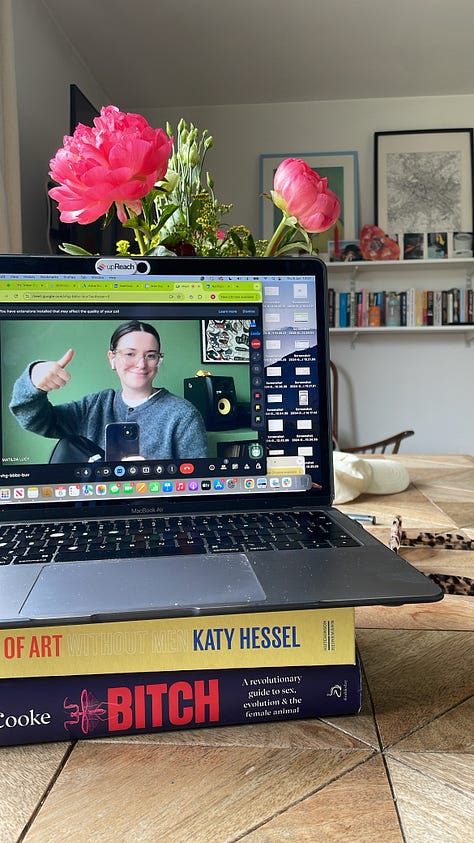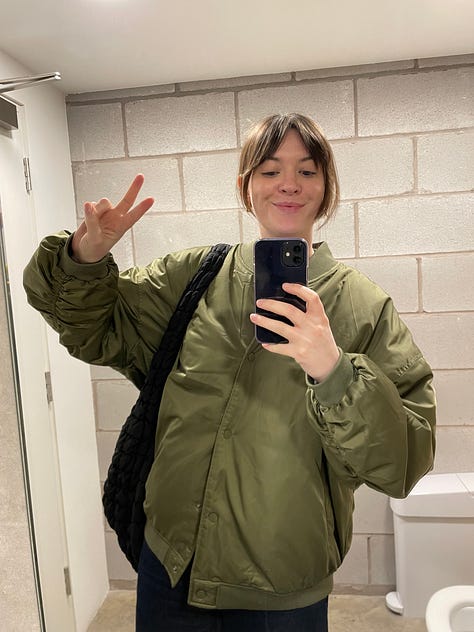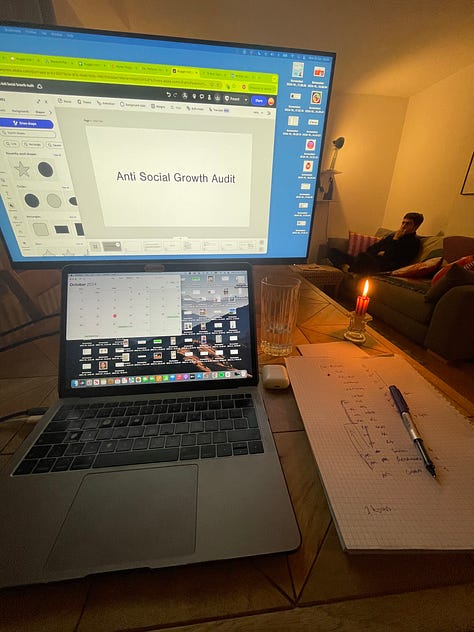Reclaiming the term "lifestyle business"
What it means, why the ick factor, and reflections 5 years into self-employment
Last week, a founder friend confided over coffee, “I’ve realised I’m building a lifestyle business, but I’m ashamed to admit it.”
When I asked what she meant by that, she described her goals: keeping full creative control by not taking investment, designing work around family life, and having the freedom to enjoy life beyond work during the week.
I could relate to all of it including why she felt ashamed. The term “lifestyle business” has been floating around since the late 80s, but its meaning has always been blurry and loaded. It got me wondering what it means and why it’s still got such a high ick factor.









What’s a lifestyle business?
To VCs in startup land, it denotes a business they don't see scaling to 100x returns. To many, it refers to the digital nomad working from the beach.
The reality for most - 74% of SMEs in the UK employ no one - is a one-person business designed to be profitable around everything else they have to and want to do in life.
In 2011 Barbara Taylor, writer of the “You’re the Boss” small business column in the New York Times, asked her colleagues for their descriptions. She grouped her findings into three “flavours” of lifestyle businesses:
1) The Underachiever
Business is intentionally capped or subordinated to the owner’s personal life: “I could open another location, but I don’t want to work that hard.”
2) The Hedonist
Business exists solely to enrich the owner and/or provide maximum leisure time: “I work four hours a week and split my time between Aspen and Bermuda.”
3) The Free Spirit
Business is an expression of the owner’s skills, knowledge or passion: “I do what I love and/or what I am good at.
Lazy, free-spirited party animals unite?!
Beyond the snarky labels, I think these definitions still hold up. As technich.ly describes, a lifestyle business is one where the founders produce value for themselves and employees and fill a need in a marketplace while prioritising life outside of work. “The word “exit” is never mentioned because they are happy building the company and solving a problem. Fundraising is not a focus because they are executing”.
Why the ick factor?
Following the conversation with my friend I reflected that I’d never heard a man’s business described as a lifestyle business. The implication today is that it’s not a real business if you’re not aiming for endless growth or prioritising other activities during the week. These “other” activities are often care and household work that still fall disproportionately to women.
Several business owners shared their experiences with me on LinkedIn of feeling like “lifestyle business” is levelled at them as an insult by male peers. One described being told her business wasn’t “real” because she couldn’t sell or exit it. Another shared how the pressure to “go big” left her unhappy until she embraced her own definition of success.
As a woman, to describe your business as a lifestyle business feels like an open goal for the patriarchy. “See! We knew they weren’t serious about bizniz. Leave it to the boys!”.
Reclaiming the term
Well fuck that. I will have been self-employed for five years in January. Obviously it’s not been all sunshine and rainbows (a post for another day) but on the whole, it has enabled me to:
Plan different types of work (deep, admin, collaborative, big picture etc) + play (art, exercise, rest etc) at times that work for my brain.
Have creative freedom to create, ship, and iterate on products and services.
Learn from many brilliant people working in different industries and countries.
Travel and work from different places.
Support myself and my family financially.
Balance work with childcare responsibilities for my son.
In short, to build a lifestyle that I love. What an absolute privilege.
These privileges should be universal, but they aren’t. Most working women don’t have this flexibility because the structure of our working world was built by—and for—men.
So if you are building a business around your life rather than aiming for exponential growth, you have my absolute respect. It’s what I’m doing too. I think I’ll call it a lifestyle business from now on.
Your turn
What does successful growth look like for you as we’re looking ahead to next year? Is it tied to scale, or is it tied to freedom, creativity, and balance? Literally no wrong answer.
I’d love to hear your thoughts in the comments/replies. Here are a couple of prompts:
What connotations do you have of a lifestyle business?
What kind of life do you want your business to enable?
How would you/ do you design a business that truly supports your life?





You really can have it all, in my opinion. The key to building long-term wealth through a lifestyle business is investing. VC-backed brand profits spend just as well as “lifestyle” brand profits! No need to be tied down to the ole ball and chain (aka investors) if financial security and longevity is what you’re seeking.
Here for this. Anyone mad at someone else's choice on how to run a business is severely projecting. Jog on boys!